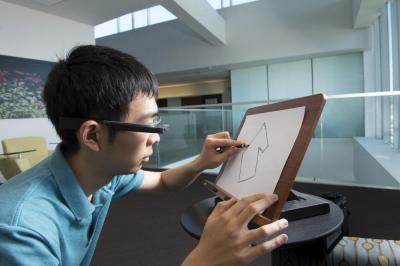HCII Faculty Part of Team That Wins Four-Year, $2.8 Million NSF Grant

Siewiorek, Klatzky Will Connect People to Wearable Cognitive Assistance
Two HCII faculty members are among a group of Carnegie Mellon researchers to receive a four-year, $2.8 million National Science Foundation grant to explore the technical challenges associated with computing systems that integrate wearable devices, like Google Glass, with cloud-based processing to guide a user through a complex task.
HCII professors Daniel Siewiorek, the Buhl University Professor of ECE and Computer Science, and Roberta Klatzky, the Charles J. Queenan Jr. Professor of Psychology and Human-Computer Interaction, will join Robotics Institute Director Martial Hebert as co-investigators on the project "Wearable Cognitive Assistance." Led by Carnegie Group Professor of Computer Science Mahadev Satyanarayanan, the team will investigate the many challenges in computer systems, computer vision and human-computer interaction that must be overcome for wearable cognitive assistance to become reality.
Siewiorek and Klatzky pointed out that the project capitalizes on the diverse but complementary strengths of the Carnegie Mellon faculty. "In funding our work, NSF recognizes that harnessing technology for personal assistance requires interdisciplinary approaches that unite computer scientists with experts on human cognition, as envisioned by our pioneers, Simon and Newell," they said.
Their work is organized into four broad thrusts. The first takes on issues associated with mobile computing and access to the "cloud" — such as resource management, network latency, placement, provisioning, scalability and load balancing. The second thrust focuses on the computer vision research necessary to address the challenges of wearable cognitive assistance, such as recognizing the current state of the user within the task. The third thrust will match task assistance to task demands. Here, user capabilities will play an integral role. The fourth thrust involves continuous integration of research from the first three thrusts and applies it to end-to-end validation on a series of increasingly sophisticated and difficult tasks.
The research initiative involves close interaction with industry partners, and will have an impact in health care training, industrial troubleshooting and consumer product assembly.
Read more about the project on the School of Computer Science website.

